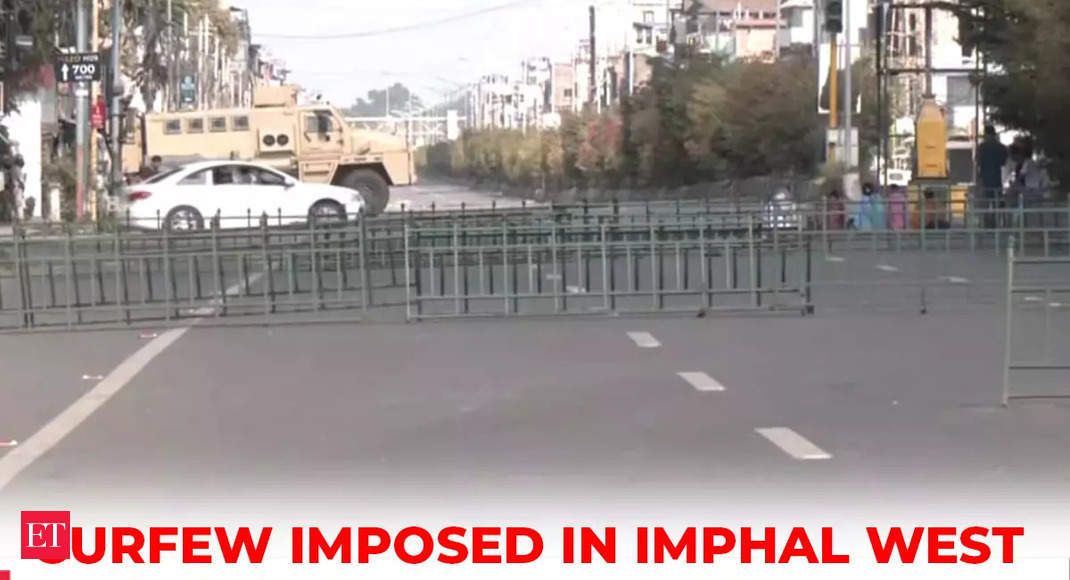 |
|
The northeastern Indian state of Manipur continues to grapple with widespread violence and unrest, as evidenced by the recent imposition of a curfew in Imphal West district. This escalation follows the discovery of three bodies, sparking fresh protests and highlighting the ongoing fragility of the situation. The unrest underscores a deeper crisis in the region, one marked by long-standing ethnic tensions, armed conflicts, and a breakdown in law and order. The discovery of the bodies serves as a potent catalyst, igniting public anger and fueling demands for decisive government action against the militant groups allegedly responsible. The imposition of a curfew, while a measure intended to quell the immediate violence, reflects the government's struggle to contain the escalating crisis. The strategic deployment of security forces and restrictions on movement are temporary measures, and the underlying issues driving the violence remain unaddressed.
The 24-hour ultimatum issued by people's rights activists places significant pressure on the Manipur government. This ultimatum underscores the public's growing impatience with the authorities' response to the crisis. The activists' demands for decisive action against armed militant groups highlight the perceived failure of the government to effectively address the root causes of the violence. This failure has created a climate of fear and uncertainty, leaving citizens feeling vulnerable and unprotected. The ultimatum serves as a stark warning to the government – a signal that the current measures are insufficient and that more comprehensive action is urgently needed to restore peace and security. The failure to meet the demands could potentially lead to further escalations and a deepening of the already precarious situation.
The suspension of internet services in seven districts further exacerbates the situation. While intended to prevent the spread of misinformation and to potentially hinder the coordination of protests, this action also limits access to crucial information and communication channels for residents. This restriction on freedom of information can impede access to vital services, hinder efforts to seek help during emergencies, and further isolate affected communities. The unintended consequences of this internet shutdown include hindering the dissemination of vital information, impacting emergency response capabilities, and creating a sense of isolation and uncertainty among the population. In a region already struggling with a lack of security, such restrictions can significantly worsen the situation, impeding relief efforts and reinforcing the sense of vulnerability felt by the local populace.
The ongoing violence in Manipur is not an isolated incident but rather a manifestation of deeper societal problems. Underlying these conflicts are issues of ethnic and religious tensions, land rights disputes, and historical grievances. Addressing these underlying issues requires a multi-pronged approach involving meaningful dialogue between conflicting groups, targeted interventions to address specific grievances, and long-term strategies for conflict resolution and peace-building. Failure to address these underlying issues risks a repetition of violence in the future. The current situation highlights the need for comprehensive and sustainable solutions rather than merely reactive measures that fail to address the root causes of the conflict. This includes tackling impunity, empowering marginalized communities, and fostering inclusive governance that addresses the grievances of all communities.
The international community also has a role to play in supporting Manipur’s efforts towards peace and stability. This could involve providing humanitarian assistance, technical expertise in conflict resolution, and diplomatic support for the government’s initiatives to address the underlying issues fueling the violence. International pressure can encourage the government to adopt more transparent and accountable governance practices, ensuring that all stakeholders are involved in the peace-building process. However, external intervention should respect the country's sovereignty and must be in accordance with the principles of non-interference in internal affairs. A collaborative approach involving the local community, the national government, and the international community can create a sustainable path to lasting peace in Manipur.
Source: Manipur violence: Curfew imposed, internet suspended in 7 districts amid raging protests
